Telecom and broadcast regulator TRAI yesterday released a pre-consultation paper on the proposed National Broadcast Policy — revived by the Ministry of Information and Broadcasting (MIB) — seeking inputs from the stakeholders and public.
Broad issues for pre-consultation include digital media (intermediaries and curated OTT platforms), satellite and terrestrial broadcasting, simplification of regulations and, very importantly, ways to promote gender diversity in the media realm.
One of the issues for discussion dwells on the fact whether TRAI is fit to hold sway over the broadcasting and telecom mediums or the sector needs a separate regulator.
Referring to a reference made by the government to it on the National Broadcast Policy or NBP, the Telecom Regulatory Authority of India yesterday said, “MIB has mentioned that the Broadcast Policy needs to identify the vision of a functional, vibrant and resilient broadcasting sector which can project India’s diverse culture and rich heritage and help India’s transition to a digital and empowered economy.
“In the light of the potentialities and intersection with national goals, a National Broadcasting Policy stipulating the vision, mission, strategies and the action points could set the tone for a planned development and growth of the Broadcasting sector in the country in the era of new and emerging technologies.
“With this background, a pre-consultation is being done with all the stakeholders to elicit the issues which are required to be considered for formulation of National Broadcasting Policy.”
Some of the broad issues for consideration in the pre-consultation process include the following:
# Public Service Broadcasting in India and its relevance and importance.
# Content priority with an aim to create global content in India and then promoting it globally.
# Mandatory sharing of television programmes.
# Simplifying policy and regulatory framework and adopting coherent and modernized approach for different types of broadcasting services.
# Promotion of local content by enhancing and incentivizing demonstration of India’s rich and diverse cultural heritage through television programmes including festivals, music, dance, art, literature, food, education, sports and more for cultural preservation and expansion.
# Piracy and content security that aims to put in place a framework for systematic and legal redressal for piracy and copyright.
# Technology innovation and standardization to promote a conducive environment for experimentation and innovations in the space of broadcasting technology.
# Convergence for enabling convergence of IT, telecom and broadcasting sectors and an effort to establish a unified policy framework and spectrum management regime for broadcast and broadband technologies.
# Separate regulatory authority for broadcasting and to explore the viabilities.
# Assuring gender diversity in the workplace; access to broadcast content by persons with disabilities; content for children and tribals.
The pre-consultation document put out by TRAI stated the broadcasting sector consists of television and radio services. The television services are delivered through cable TV, Direct-To-Home (DTH), Headend In The Sky (HITS) and Internet Protocol Television (IPTV) services.
As per the industry report, the TV universe consists of approximately 64 million cable TV households, 2 million HITS subscribers. In addition, as reported by the pay DTH operators to TRAI, there were 65.25 million pay DTH total active subscribers as on March 31, 2023. The reported subscriber base by the IPTV operators was 6,47,596 as on March 31.
The paper added that the TV broadcasting sector encompasses approximately 332 broadcasters providing 903 private satellite TV channels as on March 31. These television channels include 254 SD and 104 HD pay TV channels, provided by 43 pay television broadcasters.
Currently, there are 1,748 MSOs, one HITS operator, four pay DTH and 25 IPTV operators registered with the MIB, which has said that there are 81,706 cable operators registered in the country.
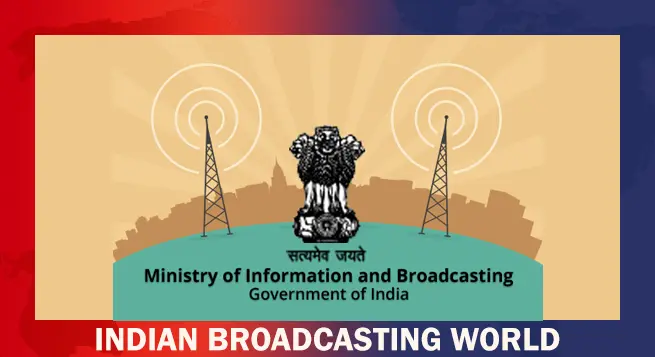 New draft of B’cast Bill proposes to regulate news influencers
New draft of B’cast Bill proposes to regulate news influencers 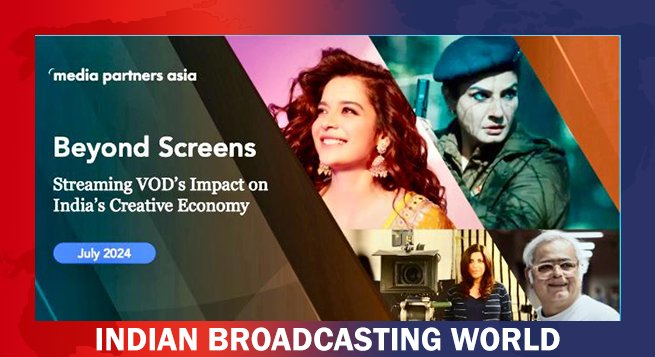 Premium online video to fuel 50% new revenue growth in India: MPA report
Premium online video to fuel 50% new revenue growth in India: MPA report  Top performer India’s 2024-29 ad revenue to grow@9.0%: MPA
Top performer India’s 2024-29 ad revenue to grow@9.0%: MPA  Tata Play’s revenue dips 4.3% to Rs 4,304.6 cr in FY24
Tata Play’s revenue dips 4.3% to Rs 4,304.6 cr in FY24  General Anil Chauhan joins News9 to honour 25 years of Kargil victory
General Anil Chauhan joins News9 to honour 25 years of Kargil victory 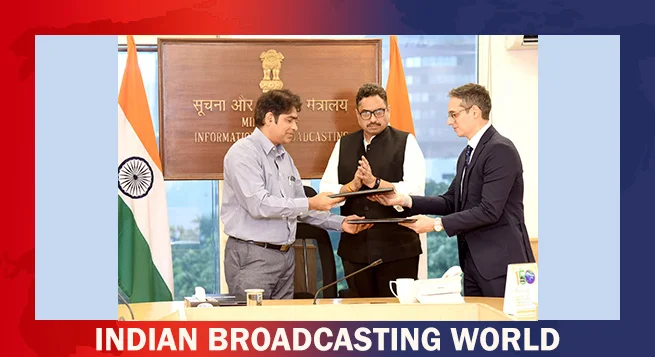 NFDC, Netflix partner to upskill voice-over artists in India
NFDC, Netflix partner to upskill voice-over artists in India 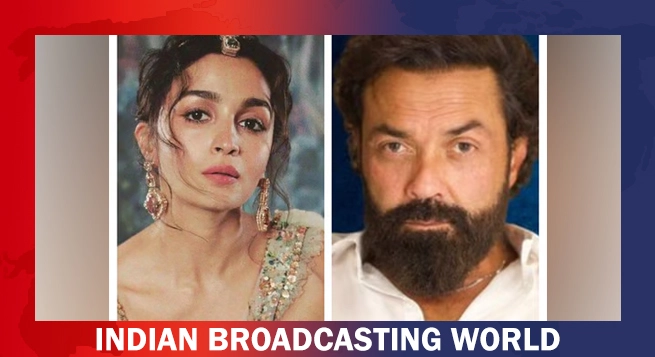 Alia Bhatt, Bobby Deol to clash in ‘Alpha’
Alia Bhatt, Bobby Deol to clash in ‘Alpha’ 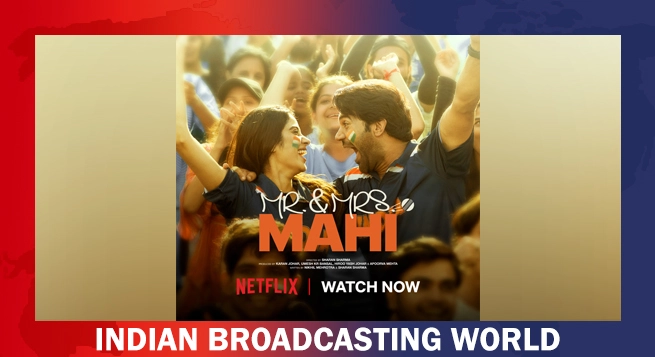 ‘Mr. and Mrs. Mahi’ now streaming on Netflix
‘Mr. and Mrs. Mahi’ now streaming on Netflix 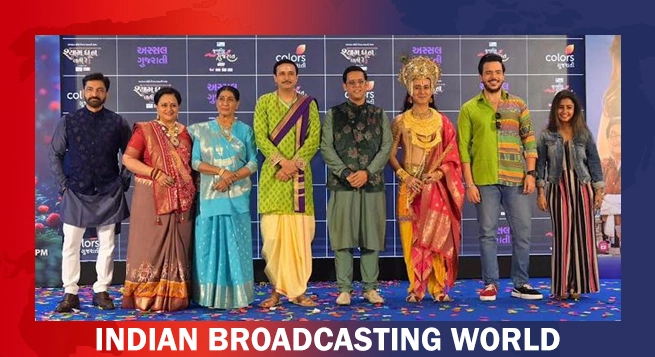 COLORS Gujarati announces ‘Assal Gujarati Nu Assal Entertainment’ with two new shows
COLORS Gujarati announces ‘Assal Gujarati Nu Assal Entertainment’ with two new shows 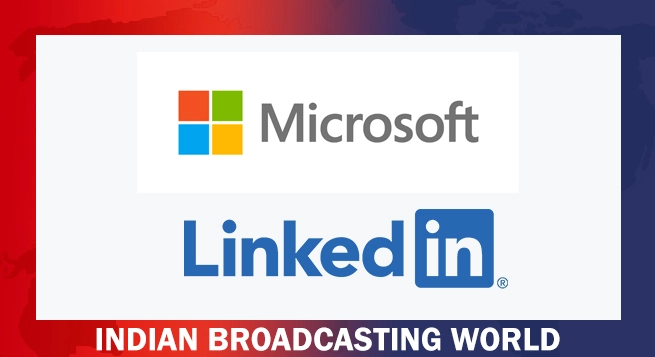 Microsoft’s LinkedIn settles advertisers’ lawsuit
Microsoft’s LinkedIn settles advertisers’ lawsuit  Netflix India announces new series ‘Rakt Bramhand – The Bloody Kingdom’
Netflix India announces new series ‘Rakt Bramhand – The Bloody Kingdom’ 








